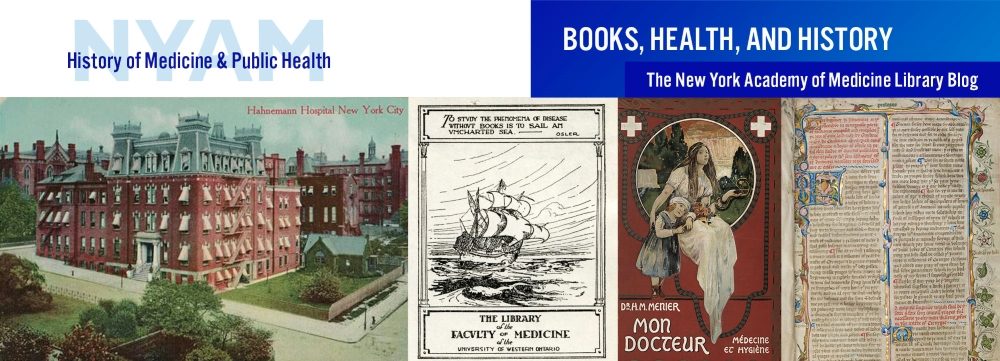Today’s guest blogger, Merlin Chowkwanyun, is an assistant professor of sociomedical sciences at Columbia University’s Mailman School of Public Health. He will present “The Lincoln Collective: The World of New York City Health Activism in the 1970s” at the Academy on May 24. Learn more and register.
I’m really looking forward to visiting the New York Academy of Medicine next week, in no small part because the health activism I’m going to discuss took place in New York City itself. My talk will focus on a couple dozen physicians, fresh out of medical school, who decided to do their residencies at Lincoln Hospital in the South Bronx in the 1970s.
They arrived in the summer of 1970 and called themselves “the Lincoln Collective,” hoping to form a critical mass of politically conscious physicians who could effect change in one institution, and in the process, provide a model for other activists across the country to follow. In its recruitment pamphlet, the Collective’s founders wrote that they intended “to become part of the solution rather than part of the problem” and “affirm[ed] that we are in training to serve the community, and that we are committed to dealing with the problems of the urban ghetto community in a long-run way.” That commitment entailed not just ephemeral service projects that lasted a few weeks, but finding ways to facilitate more permanent community input into healthcare facilities’ operations.

Cover of a Lincoln Collective Recruitment pamphlet.
Lincoln epitomized the overtaxed, under-resourced urban hospital. One official document described it as “a hopelessly inefficient and inadequate building” with “dirt and grime and general dilapidation [that] make it a completely improper place to care for the sick…” And locals had nicknamed it “The Butcher Shop.” By conventional standards, then, Lincoln was not exactly a desirable or prestigious choice for your typical medical graduate at this time. So what was it that set the Lincoln Collective’s members apart? Who were these people? And where did their values come from? What were they hoping to get by converging on one of the most dilapidated hospitals in one of the most resource-deprived areas of the United States? And most important of all, what did it all mean in the end, when the Lincoln Collective came to a close in the mid-1970s?
To answer these questions, I’ll place the Lincoln episode in a wider story about changes that wracked the healthcare sector during the 1960s and 1970s. Many Collective members had been involved in student organizing on medical campuses, not exactly known, then and now, as cauldrons of political foment. Others had come from community organizing. And some were not particularly political and simply looking for a place to serve the most indigent and medically deprived. They came to Lincoln when the health field was undergoing what I have called a “governance revolution”—multi-pronged efforts throughout the era to decrease hierarchy within medicine and increase the participation of professionals in healthcare governance.

Article on medical student unrest in Medical World News, Oct. 13, 1967, pp. 63–67.
The Collective arrived at a time of tumult around the hospital itself. Groups like the Black Panthers and the Young Lords had made healthcare equality a major tenet of their organizing. At times, the Collective’s relationship with these groups was cooperative and fruitful, at other times, tense and ambiguous. Much of that depended on Collective members’ individual ideological inclinations, which were hardly uniform throughout the group. Tensions undergirded the encounter between mostly white physicians and mostly non-white, non-professional activists, and I’ll explore these challenges throughout the talk.

Pamphlet of Health Revolutionary Unity Movement, a health-oriented adjunct of the Young Lords that also organized around Lincoln.
I’ve been thinking about the Lincoln Collective for more than a decade now. The title of my talk is an utterance I heard repeatedly when I was a college student in New York City studying activist movements in public health and medicine. “Have you heard of the Lincoln Collective?” people would ask. Some who posed the question were in it (and some claimed to be but, I’d later discover, were not). When I went off to graduate school, I put the story aside for a long time. At the confused age of 22, I didn’t feel I had the political maturity to really write about some pretty politically fraught and emotional events. Now, with more distance, I’ve returned to it.
We’re now in an era when people in the health sector—in the wake of a wave of police brutality and the Flint disaster—are asking themselves serious questions about the role political activism should play in their work. Turning back the clock and looking at a group of health activists from 50 years ago is a way of moving that conversation forward.

Pingback: Today is #GivingTuesday | Books, Health and History